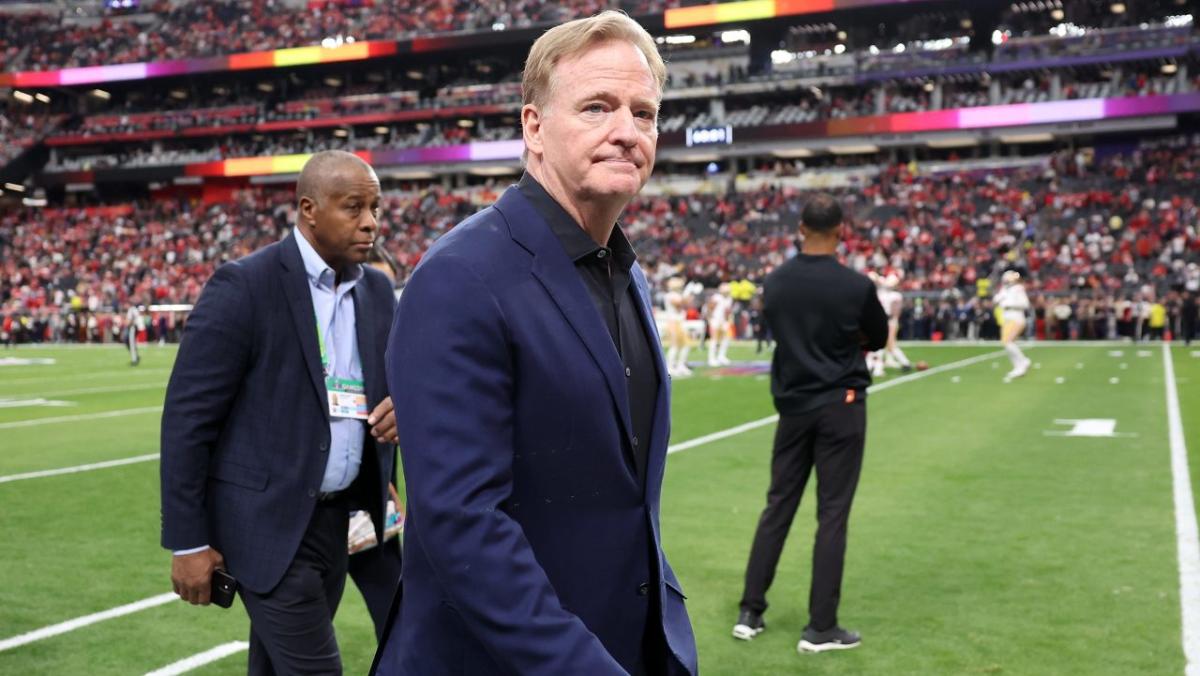There will likely be one of three resolutions to the NFL Sunday Ticket lawsuit.
The boring option: A legal victory for the NFL. Last week, a jury ruled that the league acted as an illegal monopoly by bundling the media rights of individual teams outside of their markets, thereby limiting fans (and bars) access at higher prices.
More from Sportico.com
But as early as July 31, presiding judge Philip Gutierrez could overturn that ruling or modify the decision to allow the league to continue doing business as usual. If the NFL fails Gutierrez, the league can and will appeal, asking for a stay. If granted, that would mean potential payments and modifications would be off the table as the case moves up the legal ladder and potentially before the Supreme Court.
The hard-to-imagine scenario: Congressional intervention. The NFL’s TV strategy has long drawn legal scrutiny. After the NFL’s first attempt to strike a league-level deal with CBS was blocked by a judge on anti-competitive grounds, then-commissioner Pete Rozelle secured Congressional support in the form of the 1961 Sports Broadcasting Act (SBA). The act allowed the NFL and other professional leagues to sell their entire TV rights as a package, provided the broadcasts were over the air (rather than via yet-to-be-invented satellite subscriptions or pay cable).
Jurors appeared to reject the NFL’s SBA defense this time around. The SBA covers only over-the-air broadcasts on channels like CBS and FOX, not satellite (DirecTV) or Internet (YouTube) distribution, though league officials argued that Sunday Ticket grew out of those traditional deals in crucial ways.
In theory, lawmakers could update the SBA to include those modern methods. But I don’t see current Commissioner Roger Goodell gambling on a bipartisan agreement in today’s DC if there’s another option (despite his family history). Not to mention the leagues existing The antitrust exemption status has already been challenged by the Senate.
If we don’t achieve those results, the third option is more interesting.
If the NFL is forced to change the way it distributes games that aren’t on local TV and cable, it could have the option of following the NBA and MLB practices of making an out-of-market service available through multiple providers (such as Amazon Prime Video, YouTube, league-owned apps, etc.). NBA League Pass and MLB.TV are also offered at lower rates than Sunday Ticket, with single-team, single-month options. Notably, NFL action is also cheaper internationally through the Game Pass product.
Other sports deals, however, are reportedly structured around the leagues receiving a cut of subscriber revenue, rather than an upfront fee. YouTube pays the NFL an estimated $2 billion annually for the exclusive rights to Sunday Ticket.
Sunday Ticket remains relatively inaccessible in the United States, the plaintiffs argued, because the NFL restricts access to the market to increase the money it receives from CBS and Fox games. Are (about $4.3 billion a year between the two). Those networks and the league, meanwhile, have said that local exclusivity allows them to invest so much in the award-winning coverage, which makes up a large portion of the most-watched TV programming each year, and to keep the games on free-to-air channels.
It remains to be seen how much impact a cheaper Sunday Ticket product would have on local ratings (assuming that the new Sunday Ticket viewers would still watch CBS and Fox productions, but not the productions they get on traditional TV, which would likely be less valuable to local ad buyers).
In a potential worst-case scenario for CBS and Fox’s dominance in the NFL, the ongoing legal dispute could theoretically end with a return to the status quo of the 1950s, when individual teams conducted their own TV negotiations.
In that world, we could see Cowboys games that aren’t nationally televised—yes, there are still a few—available on Max, for example, or Steelers games streaming on Netflix. In baseball, we’ve already seen Amazon invest in a Yankees-only package , though for now it’s limited to the team’s regional TV territory.
The entire concept of differentiating viewing access based on a fan’s physical location was already outdated before this case came to light. So-called “geoblocking” strategies are a relic of a pre-digital era. Now, regional sports networks are in danger of dying out as leagues consider all-inclusive streaming products like Apple’s MLS Season Pass that don’t separate nearby viewers from those farther away. However, at least one expert has pointed out the legal risks these packages could face based on the outcome of the NFL lawsuit. Certainly some Coordination between franchises is necessary to organize and broadcast a sporting event; the question is how much that would cost. unreasonable.
Assuming YouTube doesn’t lose access to the games it currently broadcasts, giving up exclusive privileges might not be such a bad thing for the streaming giant in a new world order. It could free up the service to offer cheaper, more flexible packages to fans while competing with other platforms on customer experience.
That’s a battle YouTube regularly wins. According to Nielsen, the app controls about 10% of TV time, more than any other distributor except Disney, not to mention its mobile supremacy. It’s now regularly called a “viewership giant” and possibly even “the most powerful media platform in human history.”
If that sounds familiar, know that YouTube has also been asked to conduct its own anti-monopoly investigation.
The best of Sportico.com
